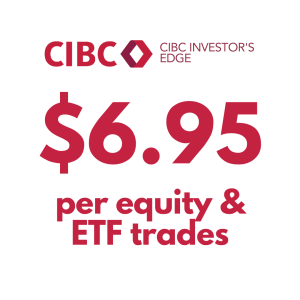
People who want a low-entry barrier into certain markets often look towards ETF investments. There are many different types of ETFs, one of which invests primarily in bonds. By investing in bond ETFs in Canada, investors bypass the need to buy individual bonds and the risk associated with them. While it is often the easy way out, the bond ETF investment is not always foolproof. Due diligence is necessary when choosing the right ETF to add to your portfolio. In this article, we will cover everything you need to know about investing in bond ETFs in Canada. At the end, we will recommend the best options for newbies and established investors. Journey with us!

Table of contents
What is a bond ETF?
To understand a bond ETF, we must first deconstruct the term ETF. This is short for “exchange-traded fund.” It operates similarly to a mutual fund in that it is a pooled investment security. The only difference is that it trades on centralized exchange platforms. Thus, investing in an ETF will result in a diversified portfolio of assets that is publicly traded. These can then be traded during market hours for profit.
A bond ETF is a specific type of ETF that focuses on fixed-income securities like bonds. Inside this portfolio are different classes of bonds. Some examples are corporate bonds, floating-rate bonds, and treasury bills. Understand that this bond investment involves buying debt instruments indirectly through an ETF. Over time, holders of these debt instruments receive profit from it. This profit comes in the form of interest, which we will discuss in the next section.
CIBC Investor’s Line Offer
Up to $6.95 per online stock or ETF trade. Plus, there’s no minimum account balance.
Finally, this type of investment is passively managed with a low minimum investment requirement. In addition, bond ETFs in Canada tend to have low management expense fees. As such, it lowers the entry barrier and allows different classes of persons to invest in bond ETFs.
Related Reading: How to Buy Bonds in Canada
Do bond ETFs pay dividends?
Bond ETFs are composed of fixed income securities which pay out interest. For this reason, bond ETFs usually pay out interest and not dividends.
As an investor, you should receive a T5 statement which shows the breakdown of what you were paid from your ETF investments, may it be interest and dividends. Using your T5 statement, you can report your income on your tax return as interest or dividends.
Related Reading: Top 10 Mutual Fund Companies in Canada
How are bond ETFs taxed in Canada?
Capital gains (or losses) from the sale of a bond ETF in Canada are subject to tax. This is the difference between the price you purchased the ETF for, and the price you sold it for. Under Canadian tax laws, 50% of these capital gains (or losses) are subject to tax. If you have a capital loss, the amount can only be applied against capital gains. Fortunately, you can tax loss harvest to ensure you use up all capital losses. As an investor, it’s your responsibility to track capital gains and losses, then report them on your tax return.
In addition to capital gains or losses, bond ETFs can yield interest income. You would be required to report interest income on your tax return and pay tax at your marginal tax rate. In some cases, you may earn foreign investment income from a bond ETF which you’re also required to report and pay tax on. Most bond ETFs don’t pay dividends, but if they do, you would be required to report that on your tax return as well. Fortunately, you would be eligible for the dividend tax credit under this circumstance.
CIBC Investor’s Line Offer
Up to $6.95 per online stock or ETF trade. Plus, there’s no minimum account balance.
What is the best bond ETF in Canada?
Determining the best bond ETF in Canada depends on a whole load of factors. Top of the list is how affordable the bonds are. Then, there is the issue of commissions and management fees to consider. Ultimately, the best bond ETF for any investor depends on their investment style, risk tolerance, and brokerage. For example, aggressive-style investors may prefer high-yield bonds compared to their passive, low-risk counterparts.
Here are our top recommendations from the available bond ETFs in the Canada market:
| Ticker | Assets Under Management (AUM) | Management Expense Ratio (MER) | Distribution Yield |
| XSB | $2.15B | 0.1% | 2.91% |
| ZAG | $6.70B | 0.09% | 3.57% |
| VSC | $896M | 0.11% | 3.24% |
| XBB | $6.70B | 0.1% | 3.24% |
| XHB | $184M | 0.5% | 4.42% |
1. iShares Core Canadian Short-Term Bond Index ETF (XSB)
Anyone who understands bonds knows they can be a defense against inflation. But, the only way is to stick with short-term options. The reason is not far-fetched; the longer the maturity time, the higher the chances are that inflation will affect the ETF. With a short-term package, the odds are reduced. This is because all the bonds in the ETF are likely to have short maturity dates, on average.
The XSB falls into this category, making it one of the best bond ETFs in Canada. Since its establishment in 2000, it has traded on the Toronto Stock Exchange with impressive results to show for it. Generally, the XSB is a blended portfolio. It contains government bonds and some corporate options in a 60:40 ratio. These bonds have an average maturity date of one to seven years. As such, it is less volatile than many bond options and holds over 500 bonds. This makes it more diversified than most bond ETFs.
Another feature that makes the XSB stand out is its high distribution rate. XSB investors receive monthly payouts and charge a minimal investment fee. For every $1,000 investment, the investor pays an annual $1 fee, a neat bargain in this market. Note that the XSB has a low yield of about 2.91%. But, considering the low risk and fee involved, this is a good deal.
2. BMO Aggregate Bond ETF (ZAG)
ZAG is arguably the most popular Canadian bond ETF since its 2010 launch — and for a good reason. It offers investors a diverse portfolio containing investment-grade, federal, and provincial bonds. On average, these bonds span about seven years and trade on the Toronto Stock Exchange. Unlike the option discussed above, this is not a short-term investment, but rather long-term.
However, one of the perks of this bond ETF is its low-priced management fee. Investors also get around 3.57% in yields. While it may not seem like much, compared to other high-yield options, it is a fair bargain.
Related Reading: 5 Best Money Market ETFs in Canada
3. Vanguard Canadian Short-term Corporate Bond ETF (VSC)
The VSC focuses on public, investment-grade, fixed-income securities. It also contains other corporate securities as part of its portfolio. Furthermore, the Vanguard’s VSC is an active participant in the short-term bond market. But to stay relevant, it employs a passive index-sampling technique. The bulk of the bonds in this ETF are corporate bonds with a maturity period of one to five years. However, it also contains other long-term bonds with maturity terms longer than five years. The percentage of the portfolio containing these bonds is relatively low.
Since most VSC bonds are corporate bonds, their credit ratings are important. About 60% of its bonds are rated A, while a smaller percentage, around 40%, are rated BBB. Both the A-rated and B-rated bonds are considered strong investments. But, the A-rated bonds are naturally stronger. As the VSC has more of these A-rated bonds, investors can expect guaranteed value for their money. Plus, since the bonds are short-term, the effects of inflation will not likely impact them. With a low annual management fee of $1.10 for every $1,000, it is a good investment. In addition, the market value has recently plummeted, which is a good opportunity for investors to buy low and sell high.
4. iShares Core Canadian Universe Bond Index ETF (XBB)
Established in November 2000, the XBB stands as one of the oldest bond ETFs in Canada. Still, it trades on the Toronto Stock Exchange. This allows it to compete squarely with other recent and modern options.
This low-cost ETF offers investors direct access to the Canadian bond investment market. What stands out the most about the XBB is the low-risk rating associated with its offerings. This is hardly surprising, considering that most of its options are government bonds. Government bonds are often deemed safe bets in investments. These XBB government bonds cut across federal and provincial bonds, with some corporate bonds thrown in the mix for good measure.
CIBC Investor’s Line Offer
Up to $6.95 per online stock or ETF trade. Plus, there’s no minimum account balance.
There are over 1,500 unique bonds in the XBB portfolio. But this is not all that makes it attractive to investors. Granted, other bond ETFs in Canada have cheap management fees, but XBB takes the crown. This bond ETF charges a minimal $1 on every $1,000 investment — a very small price to pay.
5. iShares Canadian Hybrid Corporate Bond ETF (XHB)
Bond ETF investors in Canada are generally of two categories. The first category prefers safe options to high-yielding ones. The other category prefers to take investment risks, hoping for huge rewards. But, whatever class you fall into, the XHB is the perfect hybrid bond ETF in Canada to marry both worlds together.
This investment option prioritizes bonds with a credit rating of BBB or lower. Note the fact that it contains BBB investments does not make it high-risk. Leading companies like Ford, Superior Plus, and Parkland Corporations have BBB ratings. Other companies that make up the XHB portfolio are Bell, Air Canada, Telus, Rogers, and Enbridge.
Although, it is understandable that many investors prefer government over corporate bonds. Especially in the face of inflation. This explains why the XHB suffered in the market crash of 2020. As such, we can only recommend the XHB for investors interested in high-yielding, higher risk bonds. Its bond options range from one to ten years of maturity. But the average maturity period is seven to eight years. This places it in the medium term, not the long-term, category.
The only major drawback is the high maintenance fee, around $5 for every $1,000 investment. But, again, this bond ETF in Canada is the best fit for a special class of investors, not everyone.
Related Reading: Bond ETF vs Stock ETF: Which is better?
Is a bond ETF a good buy?
The question of whether a bond ETF in Canada is a good buy depends on the investor. One who prefers an actively managed fund is better off with bond-based mutual funds. But for investors who want to buy and sell their bond-based investments often, the bond ETF is a better option.
Personal research is the best way to know if buying a bond ETF is a good decision for your portfolio. Need help with your next investment decision? A financial advisor can help. Fill out this quick questionnaire to find your perfect match!
Read More: US Bond ETF in Canada

